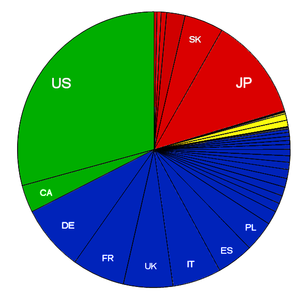Can we devise strategies to maximize the upside of technology while minimizing the downside?
We’re entering a new age in which countries, cities, corporations, and online communities all compete and collaborate to find the best and most advantageous uses of technology to benefit their constituents.
The word “technology” combines the Greek tekhne and logos, symbolizing that technology, like language, is as intrinsic to the human condition as speech. Language, though, does not stand alone; it is part of a larger cultural system. Hence the German word Technik, which denotes not only technologies themselves, but also the skills and processes surrounding them. A century ago, leading Western philosophers appreciated the promise and peril of mass industrialization technologies. Oswald Spengler’s Der Mensch und die Technik: Beitrag zu einer Philosophie des Lebens (1931) proposed to integrate technology into a philosophy of life, arguing that Technik is a process that unites our economic, political, educational and cultural systems. The American sociologist Lewis Mumford, in his Technics and Civilization (1934), emphasized that technology must be more than just objects seen as ends in themselves (monotechnics); it must be a collection of ideas and methods that improve society (polytechnics). Technik unites the scientific and mechanical dimensions of technology (determinism) with a necessary concern for its effect on humans and society (constructivism). Technik, then, is the technological quotient of civilization.
Whereas geotechnology is about power, Technik is about adaptability. We live and die by our Technik, the capacity to harness emerging technologies to improve our circumstances. How does our culture deal with the distribution of technology? Can we devise strategies to maximize the upside of technology while minimizing the downside? Instead of West vs. East and democracies vs. dictatorships, actors ranging from cities to diasporas to corporations to cloud communities will compete and collaborate to attain Technik.
Science fiction author William Gibson’s famous quip that the future is already here but unevenly distributed is the quintessential encapsulation of the fact that we differ in our stages of Technik. In a world of such diverse political forms–democracies, monarchies, authoritarian states–the “war of ideas” will never be won. Instead, we will increasingly differentiate societies on the basis not of their regime type or income, but of their capacity to harness technology. Societies that continuously upgrade their Technik will thrive.
When standards of living are so perpetually threatened by technological shifts, shouldn’t Technik be a factor in evaluating societal stability? The contrast between the U.N.’s Human Development Index (HDI) and the reigning obsession with per capita GDP illustrates just how important it is to develop a more neutral, long-term-focused metric for progress. Many wealthy societies have low human-development scores (e.g., Arab petro-states), while China’s score is rising quickly even as its per capita income remains modest. We should layer on technology-focused criteria as well, such as the World Economic Forum’s Network Readiness Index (NRI), which assesses the quality of individual access, government regulation, and business investment along more than 50 indicators. Not surprisingly, Sweden, Singapore and Finland are at the top, but interestingly, technocratic China scores higher than democratic India, and India higher than Italy. Good Technik requires a combination of the attributes that deliver high human development, economic growth, political inclusiveness and technology preparedness.
via FastCoExist
The Latest Streaming News: Emerging Technologies updated minute-by-minute








